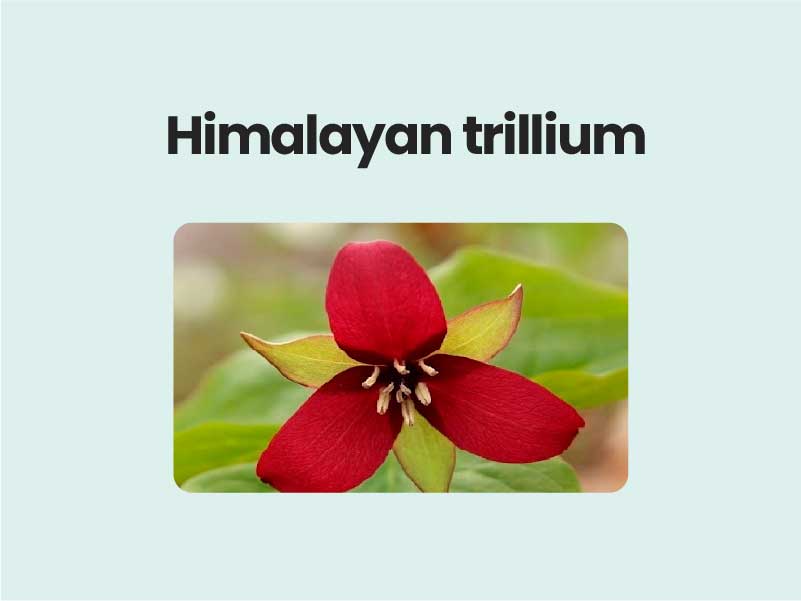Companion@360 → 7 Month programme to sharpen your writing skills → REGISTER NOW

Overexploitation, long life cycle have endangered a common Himalayan herb
The Himalayan trillium (Trillium govanianum), a common herb of the Himalayas was declared ‘endangered’ by the International Union for Conservation of Nature (IUCN). In recent years, the plant has become one of the most traded commercial plants of the Himalayan region, due to its high medicinal quality.
-
- It has been used in traditional medicine to cure diseases like dysentery, wounds, skin boils, inflammation, sepsis, as well as menstrual and sexual disorders.
- Recent experiments have shown that the rhizome of the herb is a source of steroidal saponins and can be used as an anti-cancer and anti-aging agent.
- This increased its market value and has now become an easy target for poachers.
- Present in temperate and sub-alpine zones of the Himalayas, at an altitude from 2,400-4,000 metres above sea degree, the existence of the plant has been traced throughout India, Bhutan, Nepal, China, Afghanistan and Pakistan.
- In India, it’s present in 4 states only- Himachal Pradesh, Jammu and Kashmir, Sikkim, and Uttarakhand. Usually known as Nagchatri, in native areas this herb grows to a peak of 15-20 cm.
- “There are a number of elements threatening the survival of the plant reminiscent of over-exploitation, lengthy life cycle – gradual to achieve reproductive maturity – and poor capability for seed dispersal.
- The extremely particular habitat requirement, excessive commerce worth, and rising market demand are all inflicting its decline,”
- The researchers observe that in 2017, the herb was recorded as a medicinal plant traded from India. Since then its worth has elevated and offered at $50-315 per kilogram.
- To stop its unlawful commerce, “Implementation and enforcement of sustainable assortment protocols and quotas are wanted.
- Designation of areas of pure habitat to native communities for administration of harvest is the most suitable choice to manage its unlawful commerce.
- Additional, the implantation of FairWild Normal (a set of ecological and truthful commerce tips) might help merchants, and anxious companies within the sustainable harvest and commerce of the species.”
